“If we have data, let’s look at data. If all we have are opinions, let’s go with mine.”
Jim Barksdale famously said this as the founding CEO of Netscape in the 90s.
Two decades later, we’re operating in a very different data-driven world. The question is no longer “if we have data”; it’s what data are we choosing to pay attention to.
There’s a lot of bad marketing that can be justified by data, particularly data used selectively or myopically.
In the realm of email marketing, for examples, open rates are the dominant metric that people look at and talk about. Yet, taken to extremes, that leads to clickbait.
I recently saw a marketing sales pitch with “Re:Re:” as part of the subject line. It was the first time I had received anything from the company, but they were deliberately trying to make it look like this was part of an ongoing conversation I was having with them. While that tactic might have tricked me into opening the email, it certainly didn’t put me in a frame of mind to convert, particularly when I realized they were trying to dupe me into opening it.
If we’re not selective with how we use data, data-driven marketing can lead to A/B testing the deck chairs on the Titanic. I think we have to learn to be data-driven without being data-blinded.
Here are a few related cartoons I’ve drawn over the years:
“Causation and Correlation” April 2014
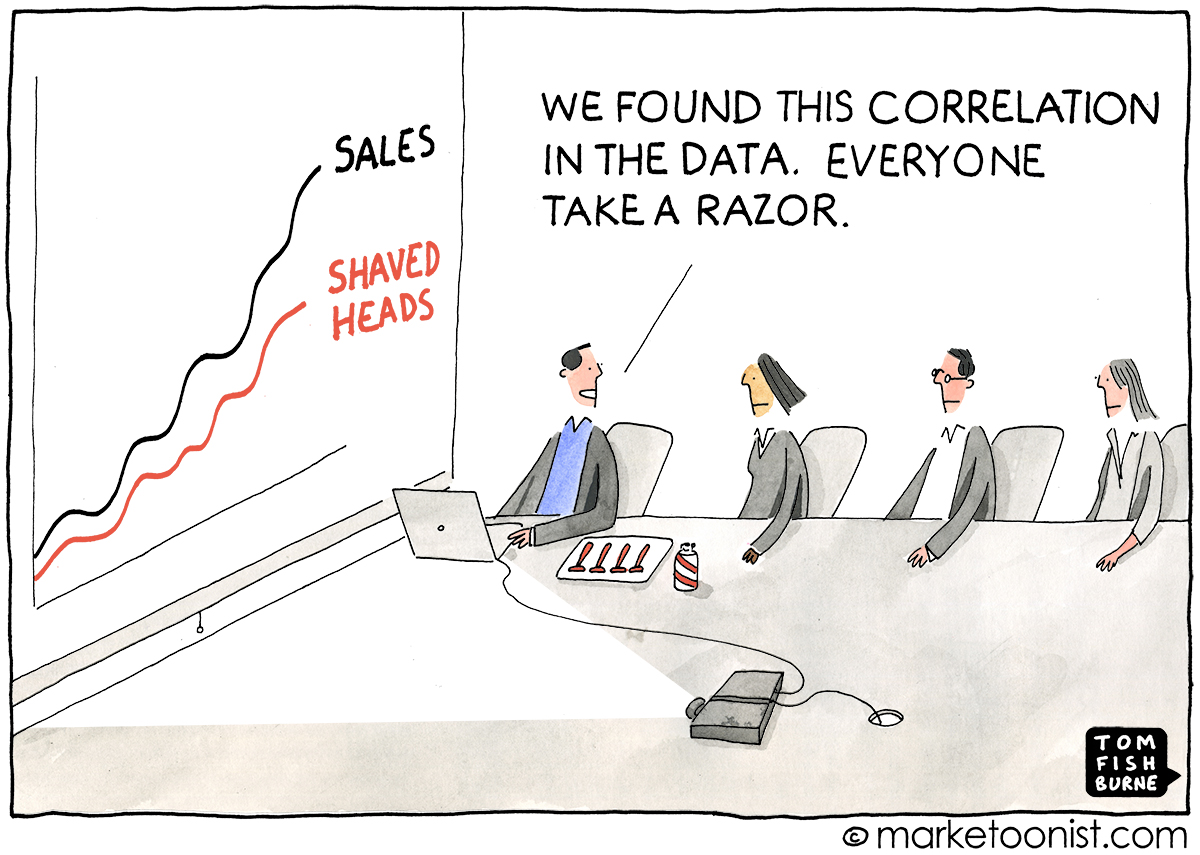
“Data-Driven Marketing” November 2014
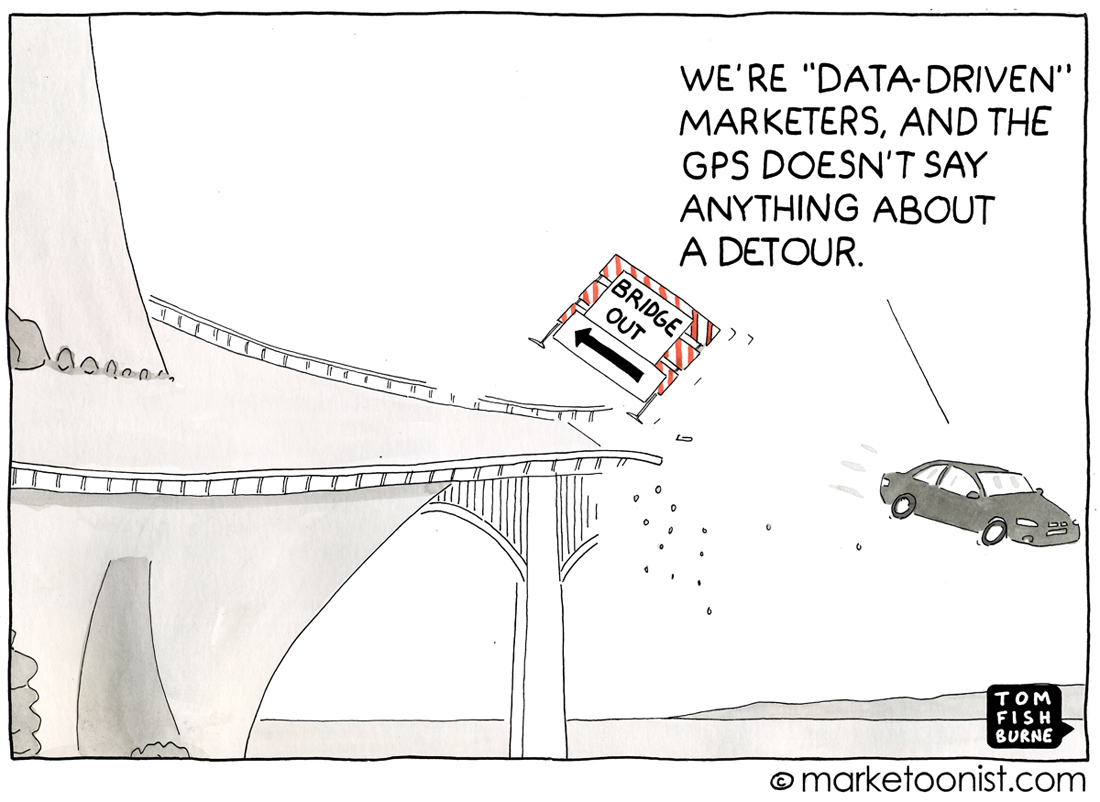
“Data-Driven Decision Making” August 2015
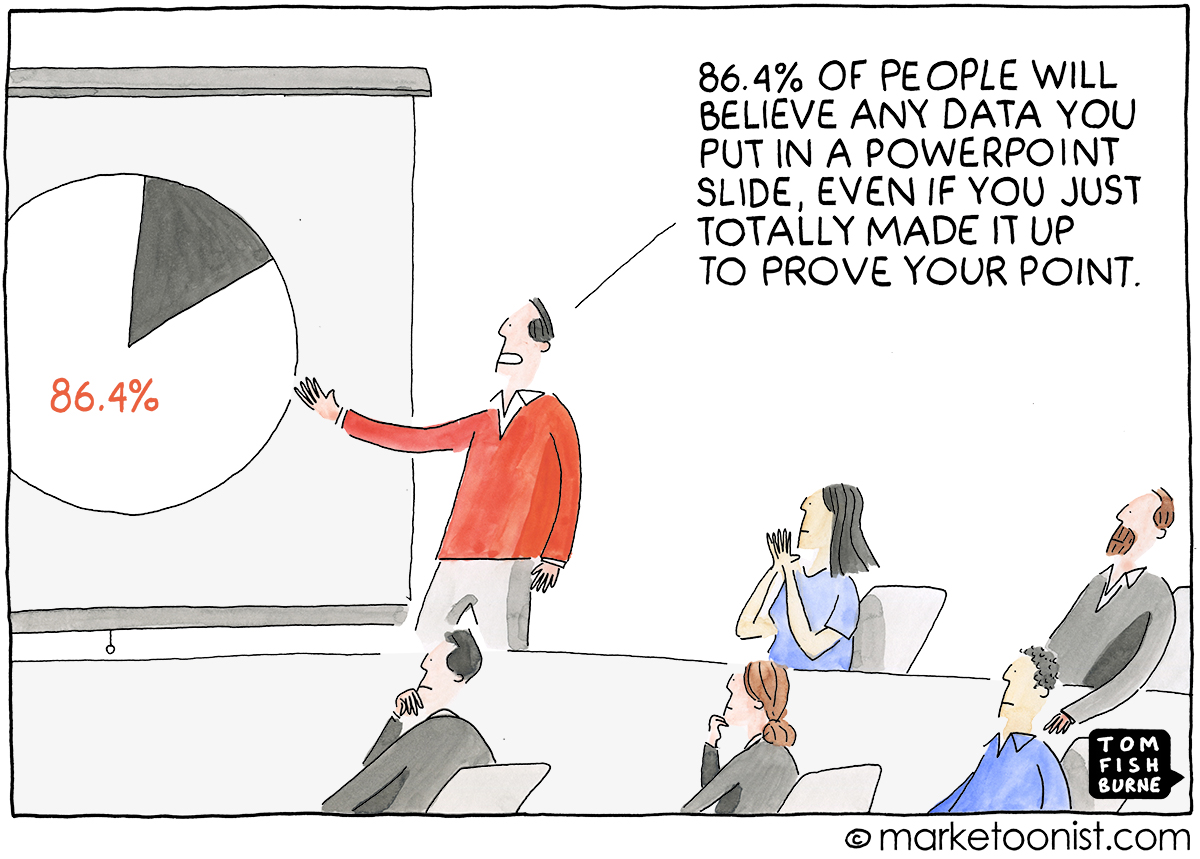
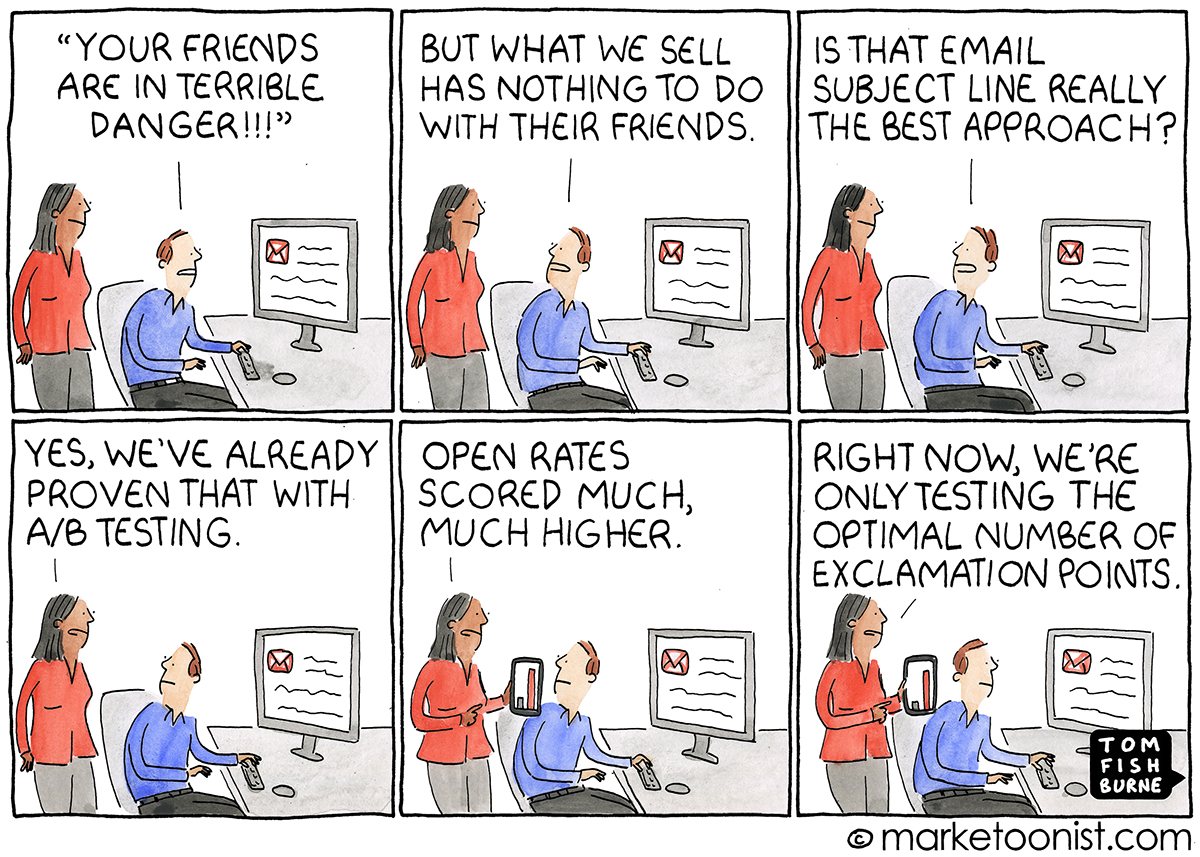
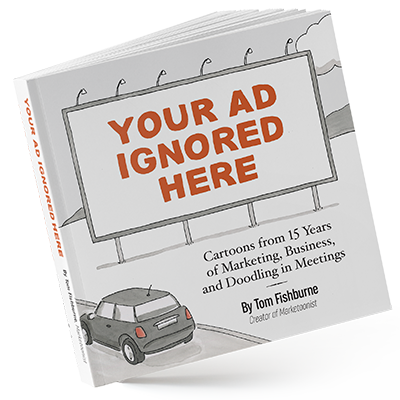
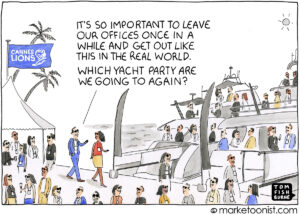
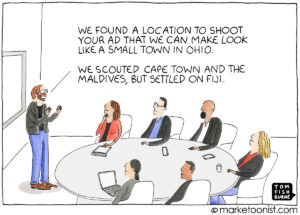
BC says
I like data, I like the process of looking for insights, it’s always interesting what you can come up with.
But I long ago learned that “interesting” is not necessarily “actionable.” Statistically-sound data correlation is one thing, being able to do something with it is another. I worked with one of the “big data” companies for a while and it was interesting to me how hard it was to make this point to folks who focused on the analytics as opposed to the application of those analytics…
And another thing is that some will reject the numbers if they don’t align with their “experience” or “gut feel.” Or worse yet, a direction they are somehow invested in…
You mentioned and I agree “There’s a lot of bad marketing that can be justified by data…” But I would balance that with “there’s a lot of bad marketing that can be driven by ignoring data.”
Actually, however, the higher-level realization I eventually arrived at over the years is that there are always multiple ways to do anything and excluding the nonsensical (or not?), they all deliver some level of results. So if you use data and achieve some level of success, nobody is going to know if you would have done better with a different analysis and application of the same data. Ignoring the data altogether might (likely would) achieve some success but no way to compare that against a data-driven strategy.
So in the end, it still comes down to smart, experienced marketers leveraging all the info available to them and developing a strategy and tactical plan that “makes sense” — and NOT just because it’s data-driven.
Ideally, what “makes sense” evolves over a longer time horizon. Companies should track different approaches over time in order to take away something from each program which could provide additional inputs to future planning. I’m a proponent of post-mortems to accomplish this, though meant as data-gathering not blame-blasting…
Too much versus too little emphasis on data is a consideration but there are more dimensions to this topic than just that…
Hugh Hubbard says
All painfully true. 20 years ago my ad agency was engaged to create a campaign. After c 24 directions based on best available data and marketing principles, I took client to lunch. Plied with good food and much wine client waxed on about the direction we might take. Thankfully client used paper napkins to explain. I returned to agency with napkins. Immediately ran them by all senior agency people who laughed but included the idea in the next batch. Guess which one won. Finally agency made some money. The brand failed. Despite all the correct advice re fact- based marketing, methinks very little has changed. Is there an issue about ethics here? What’s your advice about where the balance point is?